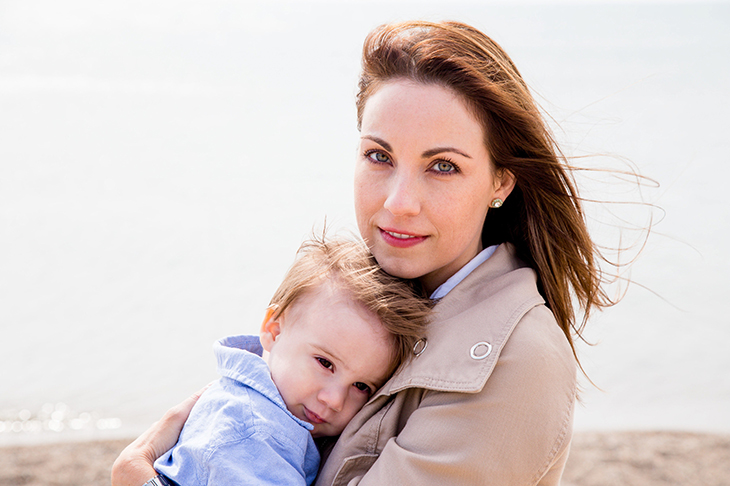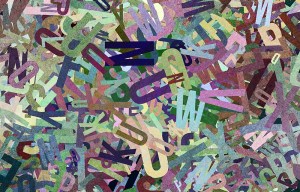The first person I heard refer to their child as ‘mama’ was a friend I met at a prenatal yoga class when I was pregnant with my daughter six years ago.
After the babies were born, I would hear her croon to her daughter as she put on her tiny snow suit, ready for the bitter New York winter outside: ‘Come on mama; let’s go mama.’
She does know it was she who gave birth to the child and not the other way around, I would wonder.
To begin with I didn’t think much of this somewhat idiosyncratic nickname. And then I began to hear other women use it too, tiny babies and energetic toddlers referred to with the bafflingly inappropriate moniker ‘mama.’
It was when I heard a mother in the library telling her two-year-old son – yep, as in male child, not female adult: ‘Good job, mama,’ that I decided to look into this bizarre new linguistic phenomenon.
Chat on message boards on sites like What To Expect and Quora
But my friend Michelle isn’t Hispanic – she’s Italian; her husband is Jewish. And I’d noticed ‘mama’ being used by women of all ages, classes and races.
And then, like a mutating disease transmogrifying into a new species, ‘mama’ took another giant evolutionary leap.
Walking down First Avenue on my way to the dentist, a grocery driver stepped into the bike lane and was nearly run over by a delivery man on a bicycle. ‘Hey, mama, watch out,’ he shouted after the cyclist’s broad – male – frame. Wait, men can be ‘mama’ too?
And then on my favorite guilty pleasure TV show, Top Chef, at the dramatic peak of an episode in which one contestant was attempting to apologize for betraying another to the judges over the use of pre-made waffle batter, the squealer began: ‘Mama, I’m sorry…’ ‘Don’t you “mama” me’, the other snapped back.
Neither contestant was related to either each other or to any small children. Instead it was clear the contestants both understood – and expected the viewers to appreciate – that ‘mama’ was now synonymous with ‘sweet heart,’ or ‘darling,’ or even ‘buddy.’
Like ‘like,’ it seems ‘mama’ has become, like, both ubiquitous and incontinent – and therefore ultimately meaningless.
It’s so illogical it’s positively Orwellian: war is peace, freedom is slavery, ignorance is strength – and children are mamas.
But wait – are we really going to let go of ‘mama’ as easily as all that?
It was the late Russian linguist Roman Jakobson who established that ‘mama’ is a universal term for ‘mother,’ derived from the sound virtually all babies make when trying out what will soon become early speech. While there are numerous words in languages all over the world for ‘mother,’ – from ‘haha’ in Japanese, to ‘um’ in Arabic and ‘maan’ in Hindi – the babies have already picked their own common term: ‘mama’.
The flame of joy every parent experiences when the small,much-loved but essentially mysterious creature they are sharing a home with displays a first flicker of recognition by referring to them as ‘mama’ or ‘dada’ is also universal. It makes you want to scream it from the roof tops: ‘They know who I am! They love me back!’
No one’s giving away ‘dada’ any time soon – so why are we relinquishing our precious ‘mama’ so carelessly?
Babies use ‘mama’ to describe the woman who (in most cases) grew them in their bodies, went through the wonder of birth with them, nourished and held and loved and cherished them. It’s the word they choose all by themselves to describe the person they consider the center of their world.
So I’m with the Top Chef contestant: unless you are among the miniscule proportion of the world’s population that I actually gave birth to, please don’t call me ‘mama’.





















